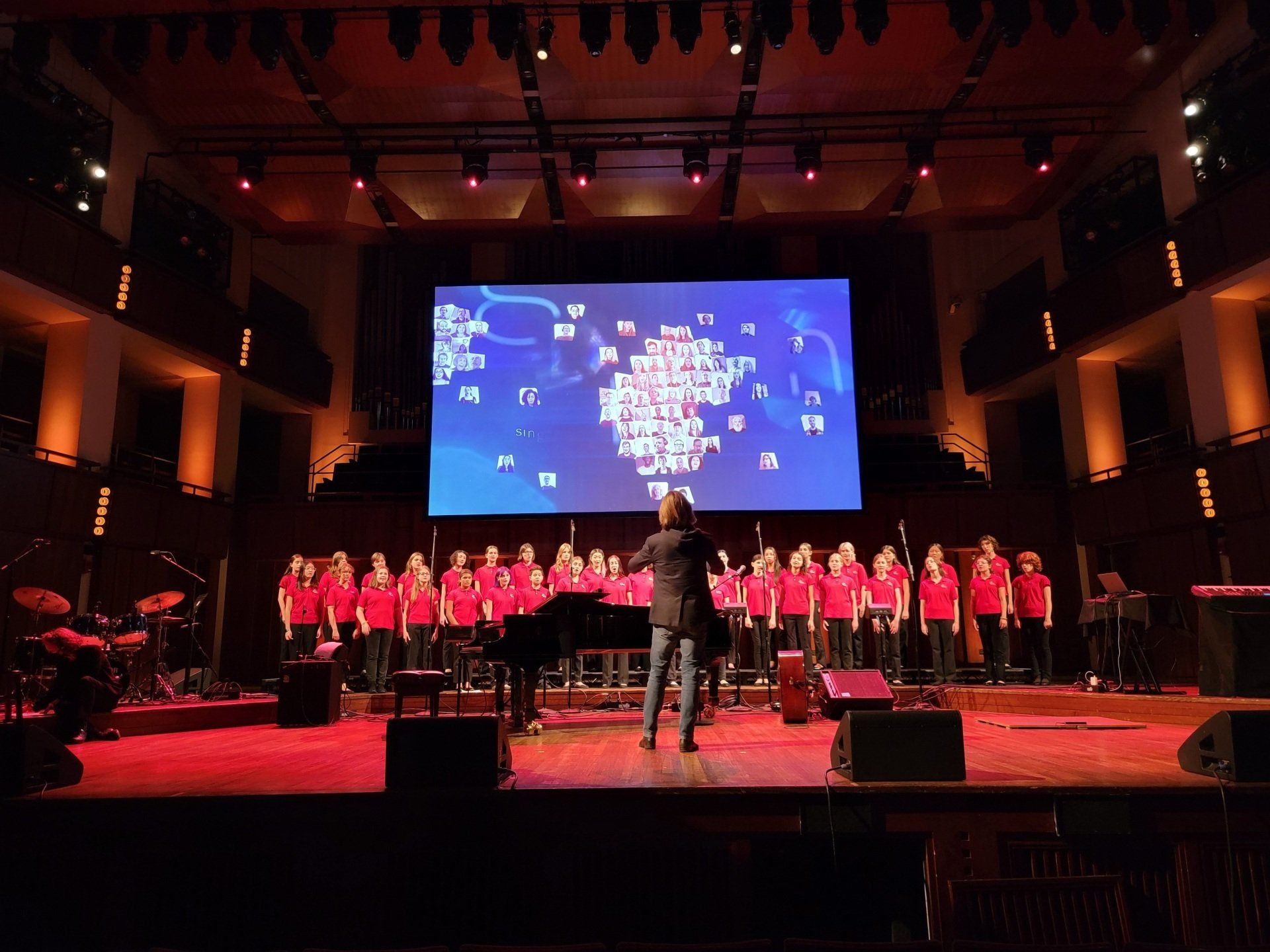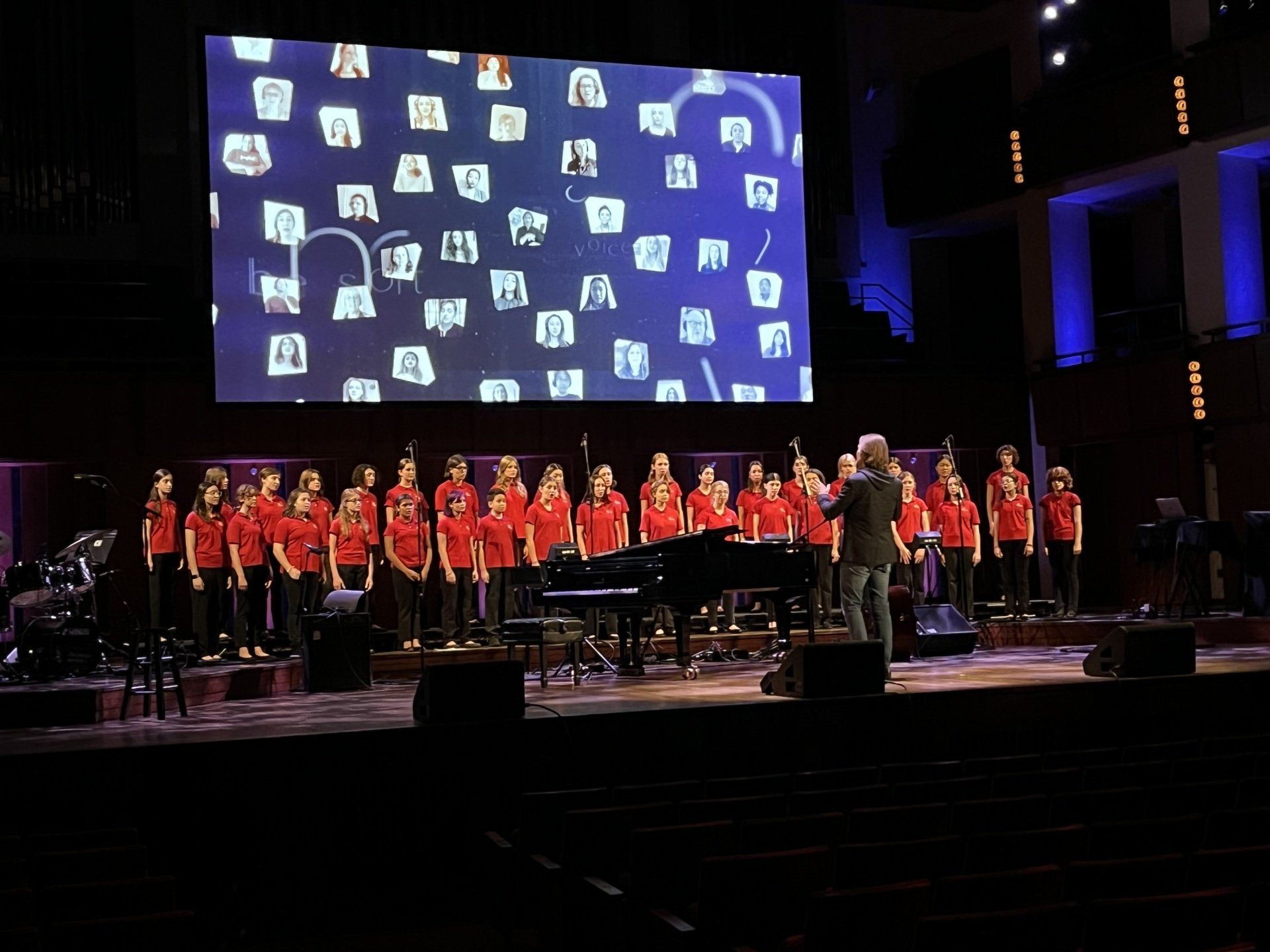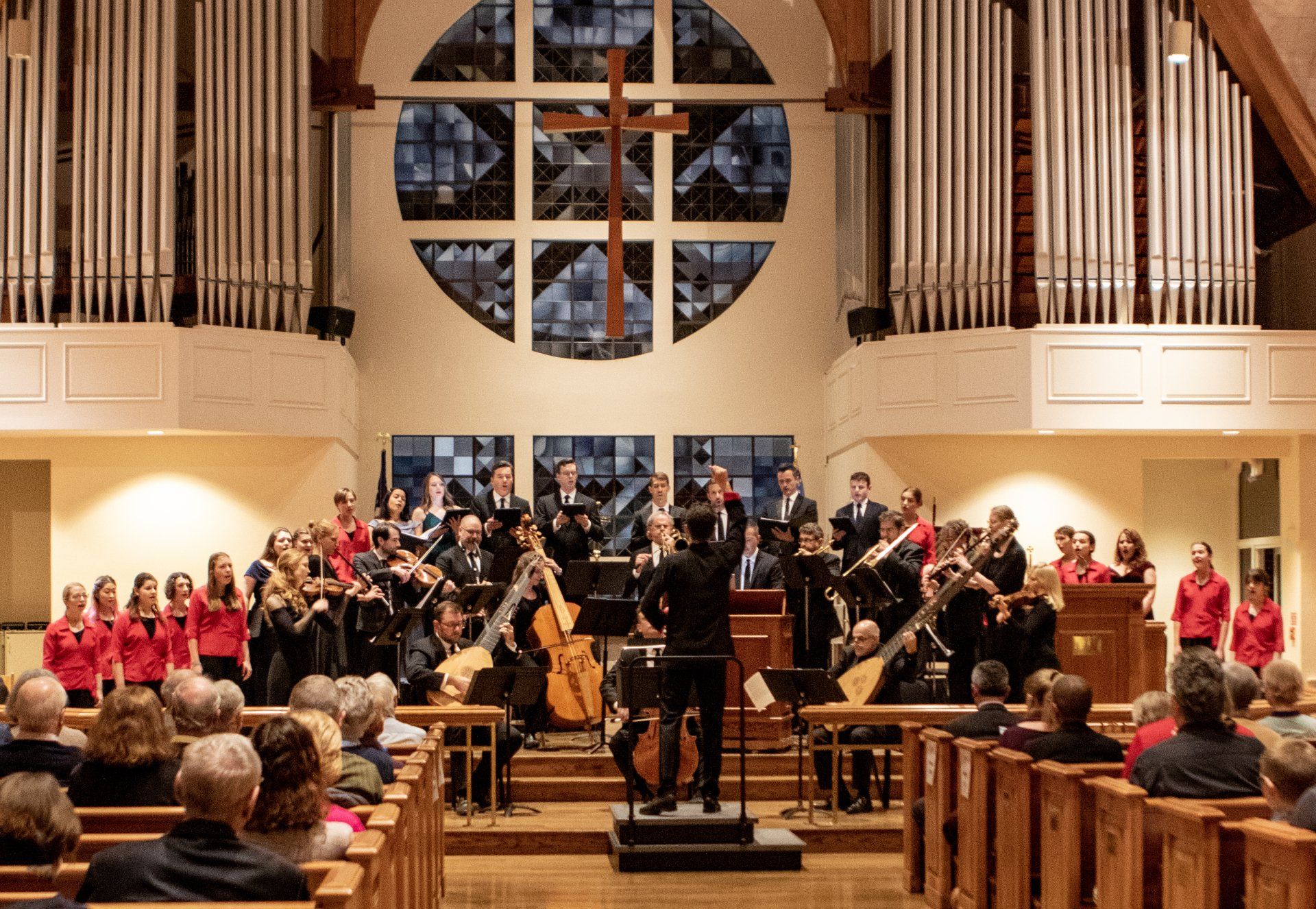Video Projects, Virtual Choirs, and Connecting Through the Pandemic
Over the past several years, the world of choral singing has faced some serious challenges. The COVID-19 pandemic shut down in-person singing in early 2020, and choruses around the world had to evolve and adapt to a fully virtual model or risk closing down entirely. The Children’s Chorus of Washington, like many youth choruses, sought out ways to continue engaging with our members and facilitating connection between our singers and families through the darkest days of the pandemic, and in the first semester of our 2022-2023 season those skills have proven themselves to be useful in more ways than one.
In early October, singers in Advanced Bel Canto and Concert Chorus were invited to participate in a performance titled “Renew/Remix” as part of The Kennedy Center’s
Sound Health
initiative, a project that works to highlight the deep scientific and emotional relationship between music and wellness. This year, the symposium specifically focused on what it means to be in community after such a long period of isolation and quarantine, and featured musical guests like esperanza spalding, Renée Fleming, Dessa, and more. CCW’s singers performed under the baton of famed choral conductor and composer Eric Whitacre in a rendition of his piece “Sing Gently.” Singers were asked to perform live while also singing along with a pre-recorded audio and video track of a virtual choir, requiring intense focus, flexibility, and professionalism of our students. The piece was originally written for a fully-virtual choir–a format Whitacre pioneered over a decade ago and that he has since written several pieces for–and is expressly about joining together in musical community.


CCW's Advanced Bel Canto performs with Eric Whitacre as part of the "Renew/Remix" concert at The Kennedy Center; photos by Maxine Pagliano
CCW is no stranger to virtual choirs; during the pandemic, our singers recorded several videos in this fashion that required them to work independently and make recordings from their homes that could then be edited together into one cohesive product. Even though physically gathering together was difficult, our incredible choristers managed to create beautiful, meaningful community music-making, like this performance of Mozart’s “Laudate Dominum,” arranged by Doreen Rao, featuring CCW alumna Catherine Wethington:
Check out our YouTube channel to explore some other pandemic performances, including an all-alumni recording of coal miners’ song “We Rise Again,” arranged by Stephen Smith, and the combined Young Boys’ Ensemble and Bel Canto performing Eleanor Daley’s “Canticle of the Spirit” and Jim Papoulis’s “Oye.”
Just a few weeks after performing “Sing Gently,” members of CCW’s Chamber Ensemble joined professional D.C.-based group The Thirteen for three performances of Monteverdi’s
Vespers of 1610. Choristers sang a series of unison antiphons in between movements of the
Vespers, and while those pieces may have sounded simple, they’re anything but. Singing in “flawless unison,” as Washington Classical Review writer Alex Baker
praised CCW for, is a difficult task that requires choristers to be intensely focused, disciplined, and listening with sharp ears. In rehearsal, they learned how to blend their voices to create a tone that sounds as if it’s coming from a single voice, even though there were 15 of them singing at once. It was no easy task, and we’re incredibly proud of our singers for pulling it off with professionalism and poise.

Chamber Ensemble’s experience didn’t end with the last Monteverdi performance, however. The following week, our singers participated in a professional recording session with The Thirteen and Dark Horse Consort at the Franciscan Monastery of the Holy Land in America. When asked about what they’d learn from participating in these performances and recordings, a common theme among our choristers was discipline. Choristers Evelyn Goldin and Sofia Kutko noted this immediately, saying “This has been an incredible opportunity to work with such talented musicians, to see how focused they are in rehearsals, how disciplined, they’re really great examples for us.” Nicole Talledo agreed, commenting that “[The singers of The Thirteen] can be really good role models for us in the future” while adding how much she enjoyed “learning their style of music… and knowing more about the historical context of this kind of music.” Amelia Taylor also pointed out that their professionalism encouraged CCW’s singers to work even harder, saying that “It’s been very humbling because not only are they very disciplined, they’re also perfectly in tune with each other… it’s very impressive.”
Working with The Thirteen and Dark Horse Consort on this recording project encouraged our singers to utilize all their listening skills, discipline, and knowledge of virtual projects to pull together a good recording of their antiphons in a single evening. Their hard work will be part of a forthcoming album of the
Vespers, and we can’t wait to share the final product once it’s been completed.
This isn’t CCW singers’ first rodeo when it comes to making high-quality recordings, either. Beyond the virtual choir videos linked above, CCW also put together a beautiful video project of Carly Simon’s “Let The River Run,” arranged by Craig Hella Johnson. Students recorded audio at home, and then came together in various locations around Washington, D.C. to film the accompanying video, including the Lincoln Memorial Reflecting Pool, the World War II Memorial, the District Wharf, and the National Harbor.
CCW also produced another professional recording last holiday season as part of the new Songs of the Season program on WETA, a program CCW’s Artistic Director Margaret Nomura Clark helped spearhead. Concert Choristers recorded audio for Michael Isaacson’s “Light the Legend” at Tonal Park Studios in Takoma Park, and then recorded the paired video at First Congregational United Church of Christ. Recording in a studio is very different than recording at home, and much like the Vespers project this undertaking required great professionalism and focus from our students as they sang in an unfamiliar environment with lots of moving pieces. Students then recorded the video in a different location, which called for consistency and commitment in their visual performance so that the video could be matched with the pre-recorded audio. Our students utilized these high-level skills to great effect, and their hard work is apparent in the resulting video.
In the last two years, CCW’s varied virtual and recording projects have not only kept students and families connected while the pandemic kept us physically apart, but they have also prepared our students for the evolving creative, multimedia world of contemporary choral singing. We are so proud of our choristers for all they have accomplished in a difficult period of history, and admire the discipline, resilience, and adaptability they have demonstrated in all of these projects over the past few years.

